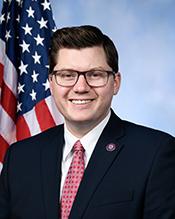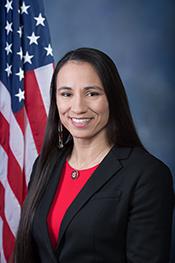0
0
0
Rural Emergency Hospital Adjustment Act
12/19/2024, 9:06 AM
Summary of Bill HR 7599
The Rural Emergency Hospital Adjustment Act, also known as Bill 118 hr 7599, is a piece of legislation introduced in the US Congress. This bill aims to address the unique challenges faced by rural hospitals that provide emergency care to patients in underserved areas.
The main goal of the Rural Emergency Hospital Adjustment Act is to provide financial support to rural hospitals that operate as emergency hospitals. These hospitals often face financial strain due to lower patient volumes and higher costs of providing emergency care in rural areas.
The bill proposes to adjust the Medicare reimbursement rates for rural emergency hospitals to better reflect the costs of providing emergency care in these settings. This adjustment would help ensure that rural hospitals can continue to provide critical emergency services to their communities without facing financial hardship. Additionally, the bill includes provisions to improve access to telehealth services for patients in rural areas, as well as funding for training programs to support healthcare providers in rural emergency hospitals. Overall, the Rural Emergency Hospital Adjustment Act aims to support and strengthen rural hospitals that play a vital role in providing emergency care to underserved communities. By addressing the financial challenges faced by these hospitals, the bill seeks to ensure that all patients, regardless of their location, have access to quality emergency care when they need it most.
The main goal of the Rural Emergency Hospital Adjustment Act is to provide financial support to rural hospitals that operate as emergency hospitals. These hospitals often face financial strain due to lower patient volumes and higher costs of providing emergency care in rural areas.
The bill proposes to adjust the Medicare reimbursement rates for rural emergency hospitals to better reflect the costs of providing emergency care in these settings. This adjustment would help ensure that rural hospitals can continue to provide critical emergency services to their communities without facing financial hardship. Additionally, the bill includes provisions to improve access to telehealth services for patients in rural areas, as well as funding for training programs to support healthcare providers in rural emergency hospitals. Overall, the Rural Emergency Hospital Adjustment Act aims to support and strengthen rural hospitals that play a vital role in providing emergency care to underserved communities. By addressing the financial challenges faced by these hospitals, the bill seeks to ensure that all patients, regardless of their location, have access to quality emergency care when they need it most.
Read the Full Bill
Current Status of Bill HR 7599
Bill HR 7599 is currently in the status of Bill Introduced since March 8, 2024. Bill HR 7599 was introduced during Congress 118 and was introduced to the House on March 8, 2024. Bill HR 7599's most recent activity was Referred to the Subcommittee on Health. as of December 17, 2024
Bipartisan Support of Bill HR 7599
Total Number of Sponsors
2Democrat Sponsors
0Republican Sponsors
2Unaffiliated Sponsors
0Total Number of Cosponsors
0Democrat Cosponsors
0Republican Cosponsors
0Unaffiliated Cosponsors
0Policy Area and Potential Impact of Bill HR 7599
Primary Policy Focus
HealthAlternate Title(s) of Bill HR 7599
Rural Emergency Hospital Adjustment Act
To amend title XVIII of the Social Security Act to expand the eligibility for designation as a rural emergency hospital under the Medicare program.
Rural Emergency Hospital Adjustment Act
Comments
Sponsors and Cosponsors of HR 7599
Latest Bills
Providing amounts for the expenses of the Committee on Ethics in the One Hundred Nineteenth Congress.
Bill HRES 131December 12, 2025
Providing for congressional disapproval under chapter 8 of title 5, United States Code, of the rule submitted by the Bureau of Land Management relating to "Central Yukon Record of Decision and Approved Resource Management Plan".
Bill HJRES 106December 12, 2025
Expressing the sense of the House of Representatives in condemning the Government of the People's Republic of China for its harassment and efforts to intimidate American citizens and other individuals on United States soil with the goal of suppressing speech and narratives the People's Republic of China finds unwelcome.
Bill HRES 130December 12, 2025
Providing for congressional disapproval under chapter 8 of title 5, United States Code, of the rule submitted by the Bureau of Land Management relating to "North Dakota Field Office Record of Decision and Approved Resource Management Plan".
Bill HJRES 105December 12, 2025
Providing for congressional disapproval under chapter 8 of title 5, United States Code, of the rule submitted by the Bureau of Land Management relating to "Miles City Field Office Record of Decision and Approved Resource Management Plan Amendment".
Bill HJRES 104December 12, 2025
Providing amounts for the expenses of the Select Committee on the Strategic Competition Between the United States and the Chinese Communist Party in the One Hundred Nineteenth Congress.
Bill HRES 104December 12, 2025
Critical Access for Veterans Care Act
Bill S 1868December 12, 2025
OATH Act of 2025
Bill S 1665December 12, 2025
A bill to extend the authority for modifications to the Second Division Memorial in the District of Columbia.
Bill S 1353December 12, 2025
Saving Our Veterans Lives Act of 2025
Bill S 926December 12, 2025
Rural Emergency Hospital Adjustment Act
Bill S 3394December 19, 2023


